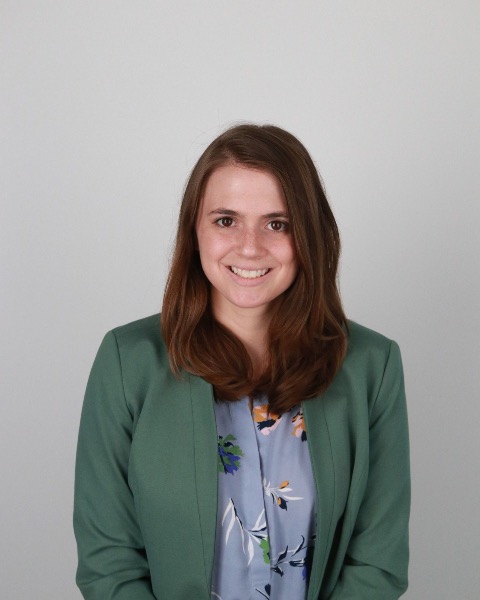Equity and justice in genetics
Genetic counseling
17- Project GIVE: Expanding Genetic Testing to Underserved Areas in the Rio Grande Valley Using an EHR-Agnostic Tele-Engagement Platform
Tuesday, June 11, 2024
5:00 PM - 7:00 PM ET
Location: The Gallery

Blake Vuocolo, MS, CGC (she/her/hers)
Research Genetic Counselor
Baylor College of Medicine, United States
Presenter(s)
Providing an accurate genetic diagnosis to children is crucial for recommending appropriate medical interventions, counseling families about recurrence risks, and addressing the psychosocial and financial challenges associated with diagnostic odysseys. However, significant disparities in accessing genomic healthcare persist in regions like the Rio Grande Valley (RGV) along the Texas-Mexico border, which has an ethnically diverse population of about 1.4 million residents and no local full-time genetics provider. Project GIVE is an NIH-funded research study at Baylor College of Medicine and University of Texas Rio Grande Valley (UTRGV) designed to change the current clinical practice in the region. By leveraging Consultagene, a cutting-edge EHR-Agnostic Tele-Engagement Platform, we can provide timely genetic evaluation and whole genome sequencing (WGS) to improve genetic health of less resourced children in the RGV. Frontline providers – including physicians, nurse practitioners, developmental therapists, and medical assistants – refer patients directly through the HIPAA compliant virtual Consultagene portal (www.consultagene.org). Families accepted into the study participate in three study appointments and receive WGS free of charge. To date, 224 families have been referred, 184 were accepted, and 78 families have completed the initial evaluation. About 20% of of our referrals have been from developmental therapists in the region, who traditionally are unable to refer directly to genetics. Most families identify as Hispanic/Latino (98%), and about half have an annual household income of less than $20,000. WGS results have been returned to 72 families. A diagnosis or partial diagnosis was identified in 26 children (36%). All participants reported that they were very satisfied with their return of results over the telemedicine platform. We believe that our model of engaging non-physician healthcare providers and using an advanced virtual platform can be replicated in other disadvantaged areas that lack genetic professionals and resources to improve genomic health of children.
Authors: Blake Vuocolo, Baylor College of Medicine; Roberta Sierra, Baylor College of Medicine; Daniel Brooks, Baylor College of Medicine; Kent Carter, University of Texas Rio Grande Valley; Keila Rodriguez, University of Texas Rio Grande Valley; Lori Berry, University of Texas Rio Grande Valley; Ana Hernandez, University of Texas Rio Grande Valley; Christopher Holder, Baylor College of Medicine; Lauren Urbanski, Baylor College of Medicine; Jose Games Godoy, DHR Health; Surya Mulukutla, DHR Health; Segundo Lizardo, Mercedes Children's Clinic; Humberto Hidalgo, University of Texas Rio Grande Valley; Alberto Allegre, University of Texas Rio Grande Valley; Sandy Magallan, University of Texas Rio Grande Valley; Sarah Rodriguez, University of Texas Rio Grande Valley; Hongzheng Dai, Baylor College of Medicine; Claudia Soler-Alfonso, Baylor College of Medicine; Brendan Lee, Baylor College of Medicine; Seema Lalani, Baylor College of Medicine
Authors: Blake Vuocolo, Baylor College of Medicine; Roberta Sierra, Baylor College of Medicine; Daniel Brooks, Baylor College of Medicine; Kent Carter, University of Texas Rio Grande Valley; Keila Rodriguez, University of Texas Rio Grande Valley; Lori Berry, University of Texas Rio Grande Valley; Ana Hernandez, University of Texas Rio Grande Valley; Christopher Holder, Baylor College of Medicine; Lauren Urbanski, Baylor College of Medicine; Jose Games Godoy, DHR Health; Surya Mulukutla, DHR Health; Segundo Lizardo, Mercedes Children's Clinic; Humberto Hidalgo, University of Texas Rio Grande Valley; Alberto Allegre, University of Texas Rio Grande Valley; Sandy Magallan, University of Texas Rio Grande Valley; Sarah Rodriguez, University of Texas Rio Grande Valley; Hongzheng Dai, Baylor College of Medicine; Claudia Soler-Alfonso, Baylor College of Medicine; Brendan Lee, Baylor College of Medicine; Seema Lalani, Baylor College of Medicine